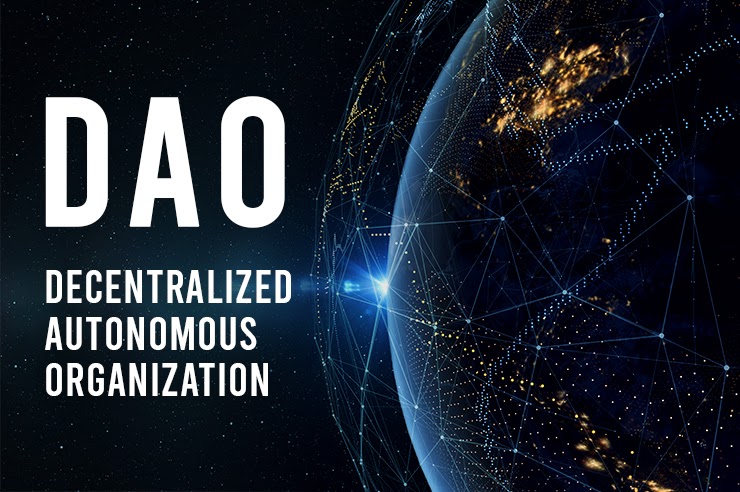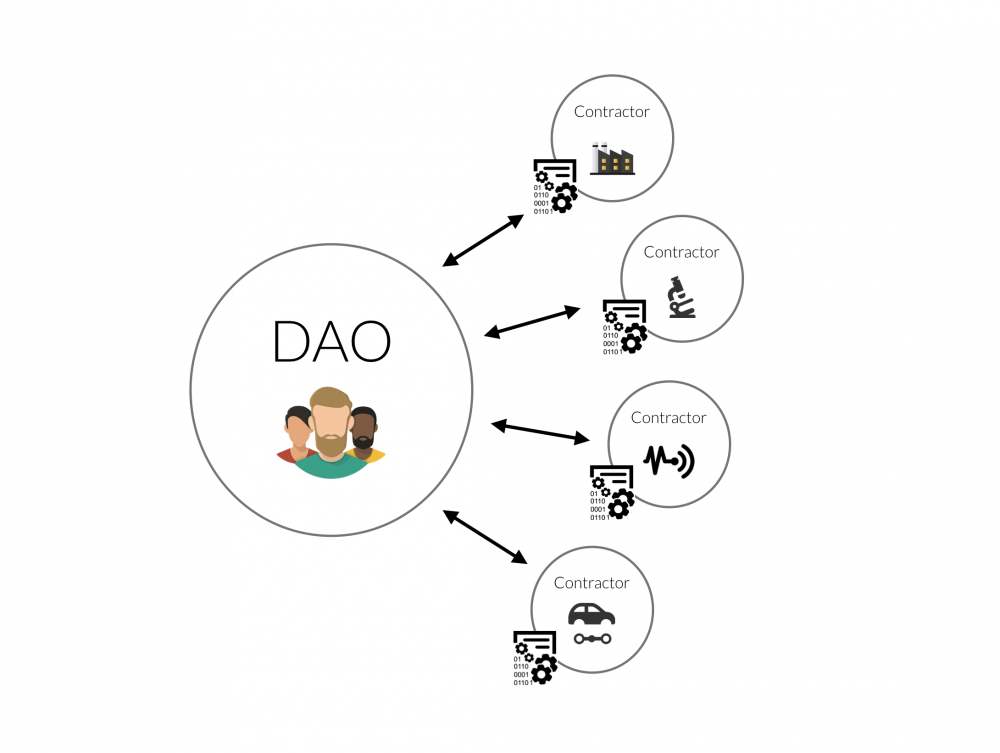Decentralized Autonomous Organizations (DAOs): Exploring the Future of Governance
Decentralized Autonomous Organizations (DAOs) have emerged as a new and exciting way to govern various processes and systems. DAOs operate on blockchain technology, making them decentralized, transparent, and secure. This article will provide an introduction to DAOs, explain how they work, and discuss their potential applications.

What are DAOs?
A DAO is an organization that operates autonomously without the need for intermediaries or centralized control. Instead, DAOs rely on smart contracts, which are self-executing contracts that automatically enforce the rules and regulations encoded into them. DAOs are decentralized because they run on a blockchain network, which is a distributed ledger that records transactions in a transparent and secure manner.
How do DAOs work?
DAOs are governed by a group of stakeholders who hold tokens that represent ownership or voting rights in the organization. These stakeholders propose and vote on decisions related to the DAO's operations, such as funding proposals or changes to the organization's rules. Once a proposal is approved, the smart contract automatically executes the decision, ensuring that it is enforced without the need for intermediaries.
Potential Applications of DAOs
DAOs have the potential to revolutionize many industries by providing a new way to govern various processes and systems. Here are some potential applications of DAOs:
Decentralized Finance (DeFi):
DAOs can be used to govern various DeFi protocols, such as decentralized exchanges, lending platforms, and insurance providers. By using a DAO, these protocols can be governed in a decentralized and transparent manner, reducing the risk of fraud and manipulation.
Supply Chain Management:
DAOs can be used to govern supply chain management processes, ensuring that goods are produced and delivered in a transparent and ethical manner. By using a DAO, stakeholders can ensure that suppliers are held accountable for their actions, and that the supply chain operates in a fair and sustainable manner.
Gaming:
DAOs can be used to govern various gaming platforms, providing a new way for gamers to vote on decisions related to the game's development and operations. By using a DAO, gamers can ensure that their voices are heard, and that the game is developed in a way that aligns with their interests.
Crowdfunding:
DAOs can be used for decentralized crowdfunding where investors can vote on which projects or ventures to support, and where the funds should be allocated.
Governance:
DAOs can be used for decentralized governance of various entities, such as cities or even nations, where token holders can vote on various proposals and policies.
Non-profit organizations:
DAOs can be used for non-profit organizations, where token holders can vote on which causes to support and how to allocate funds.
Real estate:
DAOs can be used for managing real estate, where token holders can vote on various decisions, such as property purchases and management.
In summary, DAOs can be used in a wide range of applications, offering a decentralized approach to decision-making, governance, and funding. The possibilities for DAOs are endless, and as blockchain technology continues to develop, we can expect to see even more innovative use cases in the future.

Challenges and Limitations of DAOs
Although DAOs offer a promising decentralized approach to governance, there are certain limitations that must be considered. These limitations include:
Time-consuming decision-making:
Unlike traditional companies that have a single CEO or board of directors to make decisions, DAOs require every token holder to vote on proposals, which can be time-consuming and result in slower decision-making.
Educational requirements:
DAOs consist of a diverse group of stakeholders with varying levels of understanding of the entity's operations, initiatives, and incentives. The DAO's administrators have the responsibility to educate and communicate with all stakeholders, which can be challenging and time-consuming.
Inefficiency:
DAOs may face challenges in terms of efficiency due to the need for coordination between a large number of stakeholders, resulting in administrative tasks that can slow down decision-making.
Security risks:
DAOs require a high level of technical expertise to set up and maintain, and any vulnerability in the system can lead to invalid votes and decisions, undermining trust in the entity. DAOs may also be vulnerable to hacking, resulting in the loss of treasury reserves and other assets.
In summary, while DAOs offer exciting possibilities for decentralized governance, they require careful consideration of their limitations and potential risks. It is important to implement appropriate security measures, provide effective education and communication to stakeholders, and streamline decision-making processes to ensure the success of a DAO.
Conclusion
DAOs have emerged as a new and exciting way to govern various processes and systems. By using blockchain technology and smart contracts, DAOs operate in a decentralized, transparent, and secure manner. While DAOs face several challenges and limitations, they have the potential to revolutionize many industries and provide a new way for stakeholders to govern various processes and systems.
